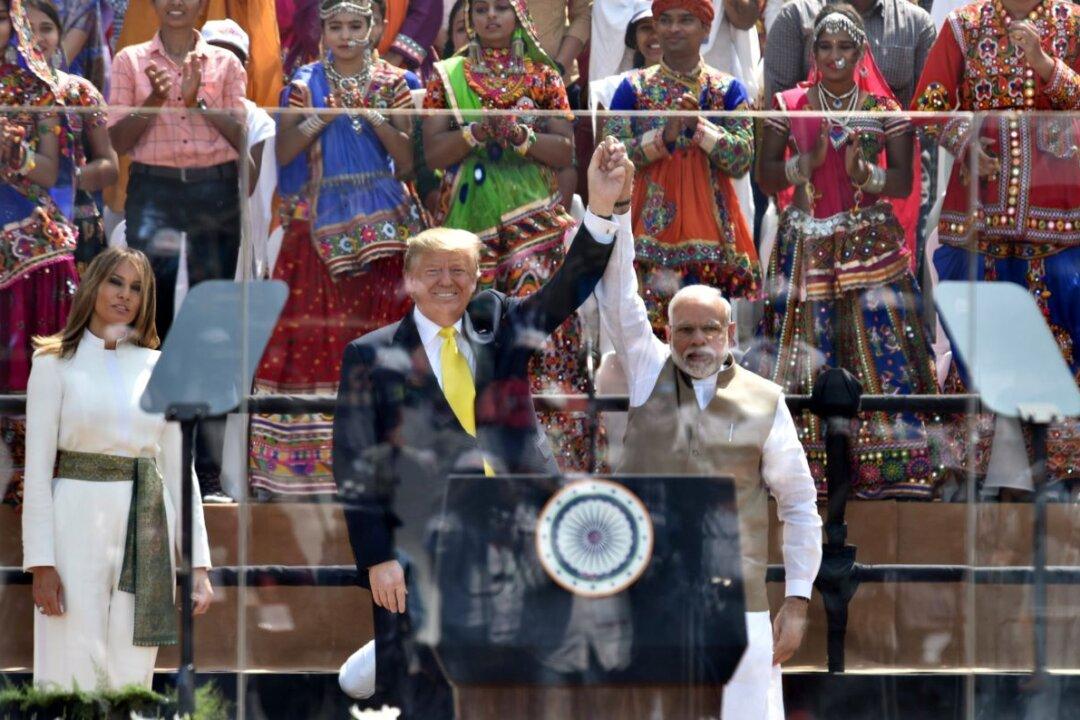U.S. President Donald Trump launched his first state visit to India by announcing that the two nations would sign defense agreements valued at billions of dollars.
Addressing a cheering crowd of over 100,000 people at the world’s largest cricket stadium in Ahmedabad city, Trump said on Feb. 24: “I am pleased to announce that tomorrow, our representatives will sign deals to sell over $3 billion in the absolute finest, state-of-the-art military helicopters and other equipment to the Indian armed forces.”





